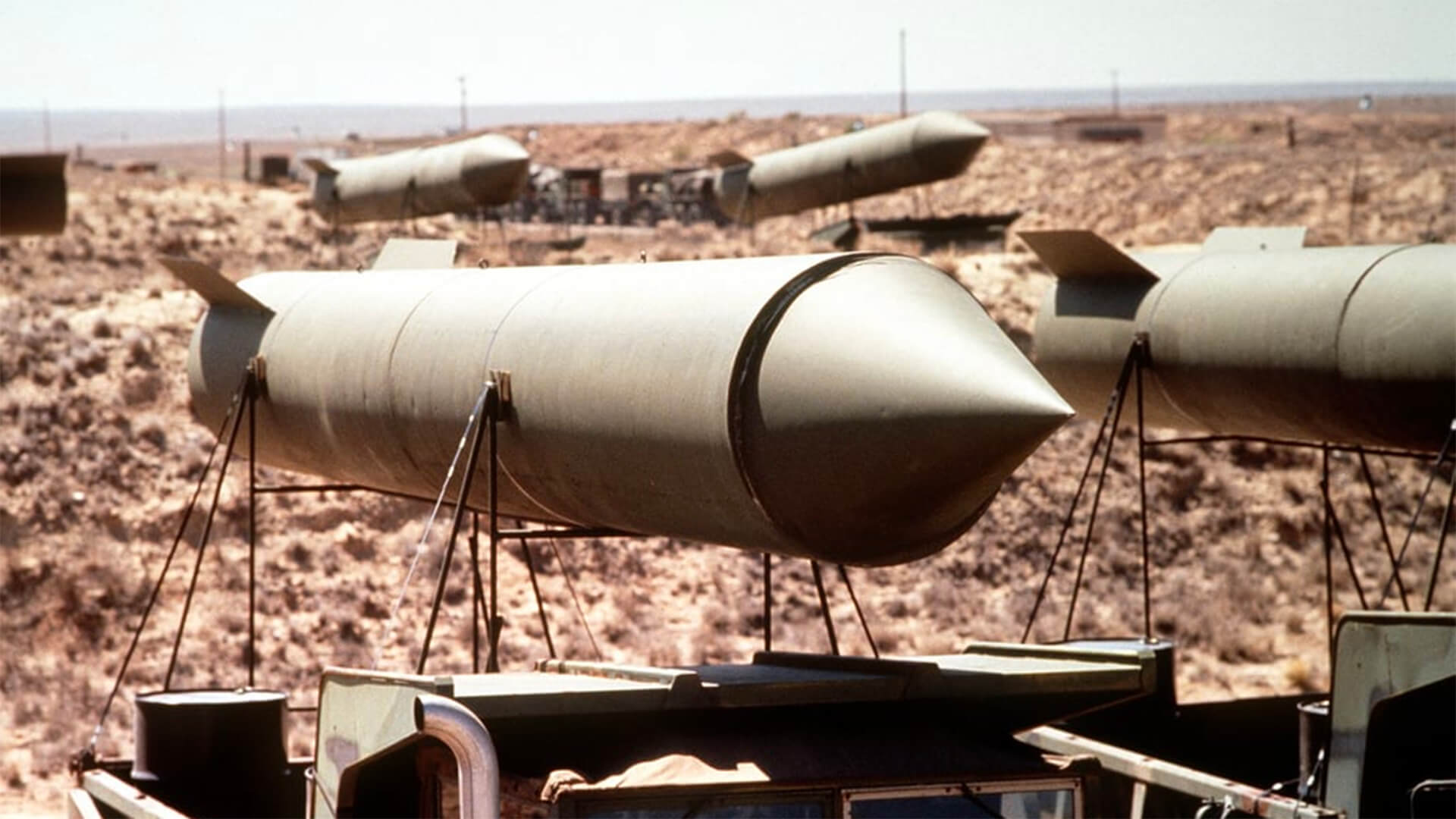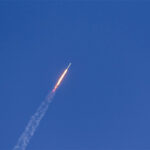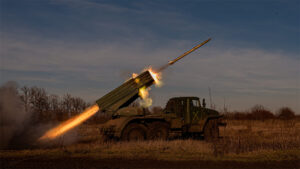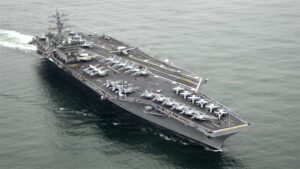The Russian military industrial complex can’t keep up with the demands of the Ukraine War, so the Russians are sourcing large quantities of short-range ballistic missiles from North Korea and Iran.
This reveals, or confirms suspicions, that Russia’s production capacity for certain weapons systems has collapsed. Specifically, the Russians are sticking with their Soviet roots and purchasing Scud-like missiles for their outdated systems from the 60s and 70s. As the faux Scuds make their way to the front lines, Western intelligence will get a glimpse at North Korean and Iranian military capabilities.
Of course the Russians will deny this, but when you see some gold-heavy planes trickling over to Iran and North Korea…don’t be surprised. However, the Russians aren’t the only ones getting prepared. A number of European countries have ordered Patriot missiles and Germany has reversed its plan to decommission its military.
Here at Zeihan On Geopolitics we select a single charity to sponsor. We have two criteria:
First, we look across the world and use our skill sets to identify where the needs are most acute. Second, we look for an institution with preexisting networks for both materials gathering and aid distribution. That way we know every cent of our donation is not simply going directly to where help is needed most, but our donations serve as a force multiplier for a system already in existence. Then we give what we can.
Today, our chosen charity is a group called Medshare, which provides emergency medical services to communities in need, with a very heavy emphasis on locations facing acute crises. Medshare operates right in the thick of it. Until future notice, every cent we earn from every book we sell in every format through every retailer is going to Medshare’s Ukraine fund.
And then there’s you.
Our newsletters and videologues are not only free, they will always be free. We also will never share your contact information with anyone. All we ask is that if you find one of our releases in any way useful, that you make a donation to Medshare. Over one third of Ukraine’s pre-war population has either been forced from their homes, kidnapped and shipped to Russia, or is trying to survive in occupied lands. This is our way to help who we can. Please, join us.
TranscripT
Hey everybody. Peter Zeihan here coming to you from Colorado. One of the bits of news that came across my screen as I was flat on my back with a thrown muscle is that the Russians have started to contact the North Koreans and the Iranians about purchasing large numbers of short range ballistic missiles. Now, the concept of the Russians shopping around for weapons systems for the Ukraine war, that’s not new.
And the two systems that have seen the most activity of the Shaheed drones, which are those moped drones, really loud ones, the fly in a straight line, those are from Iran. The Russians have been launching those at Ukraine for months and then artillery from North Korea because the burn rate for Russian artillery is an order of magnitude or more than what they can produce for themselves.
But this time they’re going for short range ballistic missiles. Now, this tells us a series of things. First of all, it gives us a really good peek into just how horrible the Russian military industrial complex is. The Russians had stopped or at least slowed the making of most of these things. If you remember back to the Gulf War of 1991, the Scuds, that’s the class of missile that we’re talking about.
They’re not advanced. They were developed in the sixties, in the seventies. They’re so basic that even the Iraqis had their own weapons program where they would make their own. They’re not particularly accurate. They don’t have much of a range. And the Russians had intended to replace all of their Scuds with Iskander, which are a weapon system that is more accurate with a little bit longer range.
But it’s turned out that the Russians can’t produce those in any meaningful number. And since they have already scaled back their ability to produce the older weapons in the first place, they’ve got to go somewhere else. They don’t have a significant skill set in military technologies anymore to speed everything up at the same time. And so this is something where they simply have to shop around to find it.
Okay. So that’s number one. And number two, we’re going to get a really good look at the inside of the military industrial complex in the military capabilities of both North Korea and Iran here. We think of these countries as being, you know, warlike, but they haven’t actually been involved in a major war for quite some time in the case of the Iranians, it was in the aftermath of the 1979 revolution that brought the mullahs to power.
That was the Iran-Iraq war. So in 1998, it was the last time we saw the Iranians actually going at it. And in the case of the Koreans, you know, we got third hand reports from countries that have bought a few of their missiles here and there. But for the most part, you’ve got to go back to the 1950s for the Korean War, which ended in 1953 when these weapon systems didn’t even exist.
So if you’re in Western intelligence or Western militaries, you’re going to be really curious to see how these things look. I mean, don’t get me wrong, it sucks to be Ukraine in this situation. But in terms of kind of lifting up the skirt and being able to see what’s going on, this is going to be a really robust intelligence gathering operation.
Then we’ve got the third thing. What are the North Koreans and the Iranians getting for this? There were some reports early on that the North Koreans were going to get some sort of intercontinental ballistic missile technology from the Russians in exchange for artillery shells. And there may indeed be some of that. But it appears that the Russians are giving the North Koreans the runaround like they did to the Indians.
The Indians spent billions of dollars in years giving money to the Russians in order to develop a joint cruise missile called the Brahmos. And the Indians are now not in public, but behind closed doors, admitting that all the money was just stolen and that they’re never going to get that weapons system and it’s time for them to move on.
And it seems that some version of that is going on with the North Koreans as well, though the Russians have talked a big talk, but the number of people that they have that can actually do the work is so small and they’re all working on weapons projects within Russia. There isn’t a lot to spare in terms of sending it to the North Koreans, which leads us to what the Russians do have.
And that’s a goal. The Russians are under any number of sanctions. They can’t use the U.S. dollar in international markets. The Chinese aren’t really even interested in having their own yuan. So bilateral trade there has proceeded, but not by the volume that the Russians would like. And nobody wants the ruble. In fact, some governments have made it very publicly to how little they think of the Russian currency.
And so the solution is gold. Russia is arguably the the world’s largest second largest, the third largest gold producer here. And then their gold reserves, both in terms of bullion and partially processed gold, are completely off the books. And they’ve got a stockpile that they don’t admit to. So probably they’re the world’s largest producer, the world’s largest processor and the world’s largest holder of gold bullion.
In addition to having a massive stockpile of stuff that they could process into finish bullion if they wanted to. And so it appears what they’re doing is when they have a lot of stuff that they want to buy and they’ve got a long list of these days because there are so many tech sanctions, is they simply load up a plane with gold bullion and fly it to the country or the entity that they’re buying stuff from.
So expect to see some version. So Marine jets weighed down by gold flying across the Caspian to get to Iran or flying across Siberia to get to North Korea to pay for this stuff. I may be laughing because it’s so weird, but. But it works. It’s un trackable. And once the gold gets into the Iranian, another country in systems, it’s a fairly straightforward process to get it laundered through a place like Switzerland or especially the United Arab Emirates.
Those are the places that do the gold certification. So this is the path we’re on right now. It’s a little nonstandard, but it is definitely showing a lot of light on a lot of things that we haven’t had good information on for a very long time. And Russia’s propensity to throw the kitchen sink and everything that’s not nailed down in the Ukraine war necessity, need to, you know, do this.
Massive arms shopping has encouraged other countries to alter their defense systems. And we now have a coalition of European countries that have placed an order for over 1000 Patriot missiles so they can shoot down all of this stuff that the Russians are now buying up so that they can throw. And the country that has placed the largest order is a country that just two years ago was quiet.
Lee in the midst of its plans to decommission its entire military because it was so committed to global peace, and that would be Germany. They’ve now come full circle and now they’re arming up as quickly as they possibly can manage, which in German terms is still not all that fast because there’s a lot of paperwork, but still.








